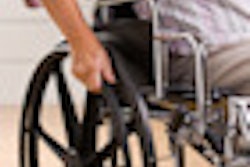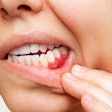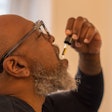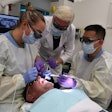Catherine Binkley, DDS, PhD, and associate professor at the University of Louisville dental school, and Knowlton Johnson, PhD, a senior scientist at the Pacific Institute for Research and Evaluation, have received a $308,000 National Institutes of Health grant to conduct a two-year study of an intervention program for caregivers of people with intellectual and developmental disabilities (IDD).
People with IDD who are living in family or group homes are less likely to receive routine dental care than those living in institutions, according to Dr. Binkley.
"Many social and behavioral barriers contribute to oral health disparities in people with IDD, including the resistance of many community dentists to accept Medicaid or patients with special needs, the lack of oral health literacy on the part of caregivers, and uncooperative behaviors of persons with IDD when caregivers or dentists attempt to provide care," Dr. Binkley stated in a press release.
The pilot program involves a case management strategy designed to give caregivers knowledge and skills in providing or supervising oral hygiene for the IDD participant.
Initially, a dental hygienist assigned to the case manager role will meet with the caregiver and go over the results of the IDD participant's oral exam. They'll develop an oral health plan that includes setting goals to overcome informational, physical, and behavioral obstacles to oral health.
Caregivers will participate in educational sessions and learn how to perform proper oral hygiene techniques, such as brushing the teeth of a cognitively impaired person. The case manager will help the caregiver find ways to get the person with IDD to cooperate in the process, monitor the caregivers' progress in meeting goals, and determine what level of support the caregiver may need in the future.
The pilot study will include 10 group homes each with three to four IDD participants.
"We believe oral health can be positively impacted through this intervention -- preventing poor oral health, and possible respiratory infections in these vulnerable populations," Dr. Binkley said.



















